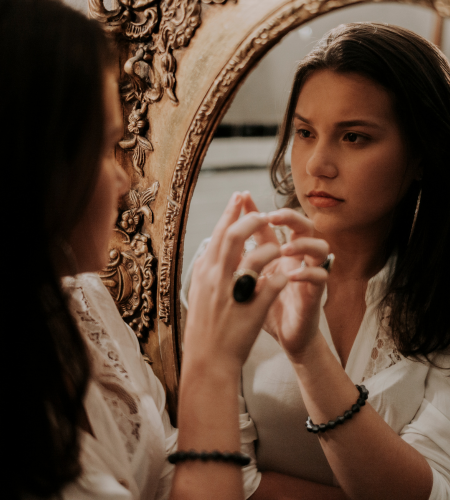
The power of the mind is often underestimated, but with hypnosis, we can tap into our hidden potential and use it to create positive change. Hypnotherapy has been around for centuries as a healing practice and is now accepted by medical professionals all over the world as an effective treatment for chronic illnesses, physical pain and psychological issues like anxiety and depression. In this blog post, we’ll review 50 hypnotherapy facts and hypnosis statistics about the positive impact of hypnosis on physical and psychological health, as well as discuss some famous people who have used hypnosis in their own lives. Read on to learn more!
Hypnosis facts
History
1. The term hypnosis comes from the ancient Greek word hypnos, which means "to sleep." [1]
2. Hypnosis has been around for thousands of years with the first documented evidence dating back to nearly 5,000 years ago in ancient Egypt. People would enter "sleep temples" where they ingested herbs and recited hours of rhythmic prayer in an attempt to be cured of whatever was ailing them. [2]
3. Avicenna (980–1027), a Persian physician, was one of the first people to describe hypnotism. He believed that a strong personality or soul could influence others via hypnotism. [3]
4. German physician Franz Mesmer is known as the "father of modern hypnotism." Hypnosis was initially called "mesmerism" after Mesmer, and the word "mesmerize" is derived from his last name. [4]
5. Scottish surgeon James Braid was the first to coin the word "hypnotism" in the 1840s. [4]

Hypnotherapy Facts
Hypnosis and smoking statistics
6. A study found that 90.6% of participants who received hypnosis treatment to stop smoking remained abstinent from tobacco use after 6 months to 3 years. [5]
7. A study of 93 male and 93 female CMHC outpatients found that using hypnosis helped 86% of the men and 87% of the women to quit smoking. [6]
8. 30 smokers enrolled in an HMO were referred by their primary physician for treatment. 21 patients returned after an initial consultation and received hypnosis for smoking cessation. At the end of treatment, 81% of those patients reported that they had stopped smoking, and 48% reported abstinence at 12 months post-treatment. [7]
9. A study of 71 smokers showed that hypnosis was 2x as likely to help people quit smoking than those who quit on their own. [8]
10. The largest ever scientific comparison of ways of breaking the smoking habit found that hypnosis is the most effective way to give up smoking. A meta-analysis of more than 600 studies found that hypnosis is over 3x as effective as nicotine replacement methods and 15x as effective as trying to quit alone. [9]
11. A randomized trial of 286 smokers found that 20% of people who received hypnosis managed to quit, compared to 14% of those receiving standard behavioral counseling. [10]
12. In 2007, researchers from North Shore Medical Center in Salem, Massachusetts compared 67 people who wanted to quit smoking and were divided into 4 groups based on their method of smoking cessation treatment: (a) hypnotherapy; (b) nicotine replacement therapy; (c) nicotine replacement therapy plus hypnotherapy; and (d) quitting “cold turkey.” This study shows that smokers who participated in one hypnotherapy session were more likely to be nonsmokers after 6 months compared with patients using nicotine replacement therapy alone or patients who quit "cold turkey.” [11]
13. In 1992, researchers from the University of Iowa statistically analyzed the results of 633 smoking cessation studies involving 71,806 participants. They found that a single session of hypnosis is 3x more effective than nicotine gum and 5x more effective than willpower alone. [12]
14. In 2004, researchers from Texas A&M University’s Health Science Center studied 21 smokers who had failed in previous unassisted attempts to stop smoking. The participants were given three hypnosis sessions and also a tape recording with a hypnotic induction they could use on their own time. At the end of the program, 17 subjects (81%) reported that they had stopped smoking. A 12-month follow-up revealed that 10 of them (48%) remained smoke-free. [13]
15. In 2015, researchers from the Faculty of Nursing at the Beni-Suef University in Egypt studied self-hypnosis as a way to help people stop smoking and found that 65.4% of those studied had stopped smoking after 9 weeks. [14]

Hypnosis and weight loss statistics
16. A 1986 study from the University of British Columbia found that women who received hypnosis lost an average of 17 pounds while women who did not receive hypnosis lost an average of 0.5 pounds. [15]
17. In 1985, researchers from the University of Northern Colorado Department of Psychology gave 109 subjects behavioral management to lose weight, but only half were also given hypnosis. At the end of the 9-week program, subjects who received hypnosis lost more weight than those who did not receive hypnosis over a 9-week program and at follow-ups 8 months and 2 years later. [16]
18. In 1996, researchers from the University of Connecticut Department of Psychology analyzed the data from a number of studies that tested the effectiveness of adding hypnosis to cognitive behavioral therapy for weight loss. They concluded that people who received hypnosis in addition to CBT lost more weight (a mean weight loss of 11.83 pounds compared to 6 pounds). They also found that those who used hypnosis continued to lose weight over time (up to 14.88 pounds) while those not using hypnosis remained at just a 6 pound loss over time. [17]
19. Hypnosis was more effective than a control group in weight loss for 60 females, with at least 20% of them being overweight. An average of 17 lbs lost by the hypnosis group vs. an average of 0.5 lbs lost by the control group. [18]
20. 109 people participated in a 9-week program for weight management that incorporated both behavior management and hypnosis. At the end of the program, both treatments resulted in significant weight loss. Follow-up studies at 8 months and 2 years revealed that those who had received hypnosis as part of their treatment continued to lose more weight than the control group, while those who had not received hypnosis had little further change. [19]
21. Researchers conducted a meta-analysis of 18 studies to compare the results of cognitive behavioral therapy (including relaxation training, guided imagery, self monitoring and goal setting) supplemented with hypnosis with the same therapies without hypnosis. The results showed that those who received hypnosis lost more weight than 90% of those who did not receive it, and maintained the weight loss up to two years after the treatment ended. [20]
22. An analysis of five weight loss studies published in the Journal of Consulting and Clinical Psychology in 1996 showed that the use of hypnosis as a supplement to traditional weight loss approaches can lead to more than double the amount of weight lost. [21]

Hypnosis and pain management
23. A 2014 study from the University of Washington found that hypnosis is an effective way to manage chronic pain, one of healthcare's largest issues. The researchers behind the study suggest that "hypnosis is an undeveloped but highly promising intervention." [22]
24. A hospital reported using hypnosis as a supplement to traditional anesthesia methods since 1992 with over 1400 patients. We've found that adding hypnosis results in increased patient comfort during surgery, and leads to less anxiety, pain, and need for other drugs while under sedation. Our patients also recover more quickly post-op. [23]
Hypnosis and sleep issues
25. In London, researchers from Guy's Hospital Medical School studyed 18 insomniacs over a 3 month period and found that those who used self-hypnosis slept significantly longer than those who didn't use it or were given a placebo. Furthermore, more patients had normal sleep patterns when using self-hypnosis in lieu of drugs like Mogadon/Nitrazepam. [24]
26. A Ph.D. from the University of Tasmania in Australia assessed 45 individuals who were randomly assigned to one of three groups: hypnotic relaxation, stimulus control, and placebo group in 1989. The study's data demonstrated that only hypnosis was useful in helping the subjects fall asleep more rapidly. [25]
27. 84 children and adolescents with sleep issues were studied by researchers from the State University of New York Upstate Medical University in 2006. The group was given hypnosis sessions and taught self-hypnosis, after which 87% reported either significantly improved or completely resolved sleep problems. [26]

Hypnosis and stress
28. In 2013, researchers from the Department of Psychology at Lund University in Sweden studied how effective audio recordings of hypnosis would be over a two-week period. They discovered that those who used the recording had significantly reduced stress levels and felt generally more wellbeing. [27]
29. In 2013, a study was done with 7 college students who were all working to get their Ph.D. The University of Delhi researched how effective hypnotherapy would be as an intervention strategy for patients that have anxiety symptoms; the results showed it to be successful. [28]
30. A 2006 study conducted by Yale University School of Medicine observed the stress and anxiety levels of 76 patients before and after surgery. Out of the 26 patients who received hypnosis, they were significantly less anxious post intervention. In fact, on entrance to the operating rooms, the hypnosis group reported a decrease in their anxiety level by 56%. The study authors conclude that hypnosis has a significant impact in reducing preoperative anxiety. [29]
31. In 1991, a study was done at the University of Wisconsin-Milwaukee with 44 introductory psychology students. 4 sessions of hypnosis were given to half of the students while the other 50 did not receive any form of hypnotism. The group that had receivedhypnosis showed lower levels stress when it came to taking exams along with an increase in grades. [30]
32. In 1994, the University of Tasmania conducted a study with 40 music students who often felt anxious when performing. The results showed that hypnotherapy could help reduce stage fright for musicians. [31]
33. In 1989, researchers studied 56 medical students and found that those who received 9 hypnosis sessions had significantly less stress when taking exams. [32]

Hypnosis and other medical issues
Hypnosis and IBS
34. In 2015, a researcher from the University of North Carolina at Chapel Hill reviewed 35 studies on the use of hypnosis for gastrointestinal disorders. The researcher concluded that evidence shows hypnosis treatment is highly effective in reducing bowel symptoms for both adults and children with IBS. Furthermore, Hypnosis can offer lasting and substantial symptom relief to patients who do not respond adequately to usual medical treatments. [33]
35. In 2003, researchers based in the United Kingdom observed 204 patients with irritable bowel syndrome (IBS). They found that 71% of the patients responded to hypnotherapy and 81% of those maintained their improvement. Hypnotherapy not only resulted in improvements for patients' symptoms but also quality of life, anxiety levels, and amount of medication required. [34]
Hypnosis and surgery
36. According to a study in 2007 from the Journal of the National Cancer Institute, patients who underwent hypnosis before surgery required less anesthesia during their procedures and also reported less post-surgical pain, fatigue and discomfort. On average, each patient that was hypnotized saved the hospital $773 compared to those who were not, mainly due to the time savings.
Dementia
37. In 2007, a study done by researchers in two care homes in the United Kingdom found that dementia patients who received regular weekly hypnosis sessions over a 9-month period showed improvements in all 7 aspects of their “quality of life”: concentration, relaxation, motivation, activities of daily living, immediate memory, memory of significant events. [35]
Arthritis
38. 66 Rheumatoid Arthritis patients partook in a study done by researchers from the Institute of Medical Psychology at Ludwig-Maximilian-University located in Germany. The group that hypnotized themselves saw significant improvements not only through personal measuring (like how they felt joint pain/function has changed) but also scientific evaluations (like blood tests showing less inflammation). The patients who used hypnosis saw more improvements than the patients in the study who used other techniques, such as relaxation. And if one of the patients in the study regularly practiced hypnosis during follow-up periods, they saw even greater changes. [36]

Asthma
39. A study done in 2000 by researchers from the University of California shows that hypnosis is a powerful tool that can help asthmatic patients, children included. [37]
40. A 2007 review of controlled outcome studies on hypnosis for asthma by a Harvard Medical School Ph.D. found that hypnosis could be an effective treatment for not only symptom severity, but also the emotional states that can make asthma worse. [38]
Blood Pressure
41. A University of Paris study in 2007 showed that hypnosis can reduce blood pressure not only immediately but also over time for those with high blood pressure. [39]
Cancer
42. A study from 2015 showed that of 150 cancer patients who used hypnosis, 78% experienced long-term reductions in common symptoms like anxiety, pain, sleeplessness, fatigue, nausea and vomiting. [40]
43. After reviewing the literature on hypnosis in cancer prevention and control, researchers from Mount Sinai School of Medicine and City of Hope Cancer Center concluded that hypnosis can be helpful during surgery or other invasive procedures. Hypnosis shows promise to alleviate symptoms related to chemotherapy, radiotherapy, and metastatic disease. [41]
44. The impact of hypnosis was studied on 20 hospice cancer patients in 2005 by researchers from hospitals and hospices in the United Kingdom. It was found that hypnotherapy did help with symptoms including insomnia, fatigue, anxiety, and bowel actions. They also concluded that the best time for hypnotherapy is right at diagnosis. [42]
Diabetes
45. A 2008 study from Sweden's Lund University found that hypnosis might improve the effectiveness of insulin treatments for people with diabetes. [43]
Headaches
46. After reviewing numerous studies on hypnosis for headaches, a Professor at the University of Utah School of Medicine concluded that hypnosis is an effective treatment for headaches and migraines. [44]
47. A 2007 study from the University of Minnesota showed that 144 children and adolescents who were taught self-hypnosis had significantly less recurrent headaches, as well as lower intensity and duration when they did experience them. [45]
Famous people who have used hypnosis
48. Mozart, who composed classical music, would compose his music while in a state of trance.
49. Albert Einstein, whose theory of relativity (was born during a self-hypnosis session once said "we cannot solve our problems with the same thinking we used when we created them”.
50. Tiger Woods induces himself into a self-hypnosis trance when he is performing to help him focus on the golf course.
Hypnosis is a powerful tool that can be used to unlock our potential and create positive change. From treating chronic illnesses to helping with psychological issues, it has been proven time and time again to have a tangible impact on physical and mental health. In this blog post, we explored 50 hypnotherapy facts about the positive impact of hypnosis, as well as hypnosis statistics and discussing some of the famous people who have used it. I hope that you’ve come away with a better understanding of how powerful hypnotherapy can be and its potential to create personal transformation.
If you're wondering how hypnosis can help you achieve your goals, reach out! I offer a free 20 minute consultation so you can get a feel for if hypnotherapy is right for you.
Check these out:
- What is Hypnotherapy and How Does It Work
- 149 Powerful Things Hypnosis Can Help With to Improve Your Life
- What You Can Expect in a Hypnotherapy Session
References
- "Hypnosis." Online Etymology Dictionary. Accessed: June 29, 2018.
- "Hypnosis in History." Nationally Accredited College of Hypnotherapy. Accessed: June 29, 2018.
- "Avicenna’s Influence on Science and Psychology." Khalil Center. Accessed: June 29, 2018.
- Pintar, Judith, and Steven Jay Lyn. Hypnosis: A Brief History. Malden, MA: Wiley-Blackwell, 2008.
- University of Washington School of Medicine, Depts. of Anesthesiology and Rehabilitation Medicine, Int J Clin Exp Hypn. 2001 Jul;49(3):257-66. Barber J.
- Johnson DL, Karkut RT. Adkar Associates, Inc., Bloomington, Indiana. Psychol Rep. 1994 Oct;75(2):851-7.
- Texas A&M University, System Health Science Center, College of Medicine, College Station, TX USA. Int J Clin Exp Hypn. 2004 Jan;52(1):73-81. Clinical hypnosis for smoking cessation: preliminary results of a three-session intervention. Elkins GR, Rajab MH.
- Guided health imagery for smoking cessation and long-term abstinence. Wynd, CA. Journal of Nursing Scholarship, 2005; 37:3, pages 245-250.
- University of Iowa, Journal of Applied Psychology, How One in Five Give Up Smoking. October 1992. (Also New Scientist, October 10, 1992.
- https://academic.oup.com/ntr/article-abstract/10/5/811/1074110
- http://www.sciencedaily.com/releases/2007/10/071022124741.htm
- https://www.ncbi.nlm.nih.gov/pubmed/1387394
- http://bscw.rediris.es/pub/bscw.cgi/d4431440/Elkins Clinical_hypnosis_smoking_cessation.pdf
- 14. https://hypnosis.edu/medical/
- Journal of Consulting and Clinical Psychology. Vol 54(4), Aug 1986, 489-492 By: G. Cochrane, J. Friesen, University of British Columbia Noha Ahmed Mohamed, Seham Mohamed ElMwafie
- J Clin Psychol. 1985 Jan;41(1):35-41 By: D. N. Bolocofsky, D. Spinler, L. Coulthard-Morris, Department of Psychology, University of Northern Colorado, Greeley, Colorado 80639
- Journal of Consulting and Clinical Psychology, 64 (3), 517-519, 1996 By: I. Kirsch, Department of Psychology, University of Connecticut, Storrs 06269-1020, USA
- (Cochrane, Gordon; Friesen, J. (1986). Hypnotherapy in weight loss treatment. Journal of Consulting and Clinical Psychology, 54, 489-492.)
- (Journal of Consulting and Clinical Psychology (1985))
- (University of Connecticut, Storrs Allison DB, Faith MS. Hypnosis as an adjunct to cognitive-behavioral psychotherapy for obesity: a meta-analytic reappraisal. J Consult Clin Psychol. 1996;64(3):513-516
- 21. University of Connecticut, Journal of Consulting and Clinical Psychology in 1996 (Vol. 64, No. 3, pgs 517-519).
- Am Psychol. 2014 Feb-Mar;69(2):167-77. doi: 10.1037/a0035644. Jensen MP, Patterson DR, Dept. of Rehabilitation Medicine, University of Washington
- Hypnosis and its application in surgery] Faymonville ME, Defechereux T, Joris J, Adant JP, Hamoir E, Meurisse M, Service d'Anesthesie-Reanimation, Universite de Liege, Rev Med Liege. 1998 Jul;53(7):414-8.
- Journal of the Royal Society of Medicine Volume 72 October 1979. By: Professor J. A. D. Anderson, E. R. Dalton BSC DipMathStats, Department of Community Medicine, Guy's Hospital Medical School, London SEL 9RT. M. A. Basker MRCS MRCGP, 95 The Ridgeway, Westcliffon Sea, Essex SSO 8PX
- Int J Psychosom. 1989;36(1-4):64-8. By: Harry E. Stanton, Ph.D., University of Tasmania, Australia
- BMC Pediatrics. 2006, Vol. 6 (23). Published Aug. 16, 2006. By: Ran D. Anbar and Molly P. Slothower, Dept. of Pediatrics, University Hospital, State University of New York Upstate Medical University, Syracuse, NY
- “Effect of Clinical Hypnotherapy on Anxiety Symptoms”, Delhi Psychiatry Journal Vol. 16, No. 1, April 2013. https://www.ncbi.nlm.nih.gov/pubmed/23427838
- Anesth Analg, 2006, Vol. 102, No 5, pp. 1394-1396
- Anesth Analg, 2006, Vol. 102, No 5, pp. 1394-1396. By: H. Saadat, J. Drummond-Lewis, I. Maranets, D. Kaplan, A. Saadat, S. M. Wang, Z. N. Kain, Center for the Advancement of Perioperative Health, Departments of Anesthesiology, Pediatrics, and Child Psychiatry, Yale University School of Medicine, New Haven, Connecticut, USA
- Australian Journal of Clinical Hypnotherapy and Hypnosis, Vol 12(1), Mar 1991, 25-31. By: Marty Sapp, Professor, Department of Educational Psychology, University of Wisconsin-Milwaukee
- Australian Psychologist, Volume 29, Issue 2, 1994. By: Harry E. Stanton, The University of Tasmania
- Am J Clin Hypn. 1989 Jan;31(3):173-80 By: B. M. Palan, S. Chandwani
- Am J Clin Hypn. 2015 Oct;58(2):134-58. doi: 10.1080/00029157.2015.1039114. Palsson O., University of North Carolina, Chapel Hill, USA
- Gut 2003;52:1623-1629 doi:10.1136/gut.52.11.1623. By: W. M. Gonsalkorale, V. Miller, A. Afzal, P. J. Whorwell, Department of Medicine, University Hospital of South Manchester, Manchester, UK Correspondence to: Dr. W. M. Gonsalkorale Hypnotherapy Unit, Withington Hospital, Nell Lane, Manchester M20 2LR, UK
- http://dementiatherapyspecialists.com/wp-content/uploads/2012/08/Alzheimers-Care-Today-article.pdf
- Psychol Health. 2000 Nov;14(6):1089-104. By: J. R. Horton-Hausknecht, U. Mitzdorf, D. Melchart, Institute of Medical Psychology, Ludwig-Maximilian-University, Goethestr, 31, 80336, Munich, Germany
- Journal of Asthma, Volume 37, Issue 1 February 2000, pages 1-15. By: R. M. Hackman, J. S. Stern, M. E. Gershwin, University of California
- International Journal of Clinical and Experimental Hypnosis 2007 April.55(2)220-49. By: Daniel Brown, Ph.D., Harvard Medical School
- International Journal of Clinical and Experimental Hypnosis, Vol. 55, Issue 1, 2007. By: M. C. Gay, Univ. of Paris, France
- https://www.researchgate.net/project/Nurse-Led-Hypnosis-Service
- https://acsjournals.onlinelibrary.wiley.com/doi/full/10.3322/caac.21165
- http://bscw.rediris.es/pub/bscw.cgi/d4431493/Peynovska-Efficacy_hypnotherapy_supplement_therapy_cancer
- International Journal of Clinical and Experimental Hypnosis, 2008, Jan. 56(1): 63-72. By: Y. Xu, E. Cardeña, Lund University, Lund, Sweden
- Int'l Jrnl of Clinical and Experimental Hypnosis, Vol. 55(2), April 2007; 207-219. By: Corydon Hammond, University of Utah School of Medicine, Salt Lake City, Utah, USA
- J Pediatr. 2007 Jun;150(6):635-9. By: D. P. Kohen, R. Zajac, Department of Pediatrics, University of Minnesota, Minneapolis, Minnesota, USA









+ view comments . . .
+
view comments . . .
-